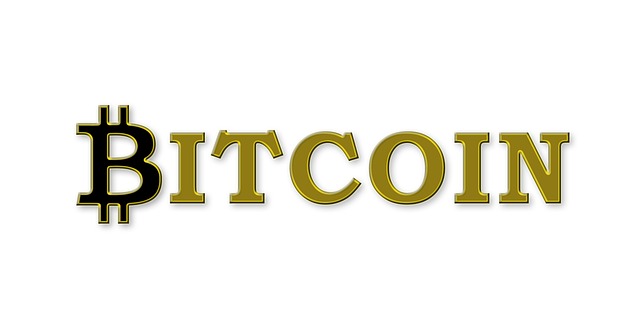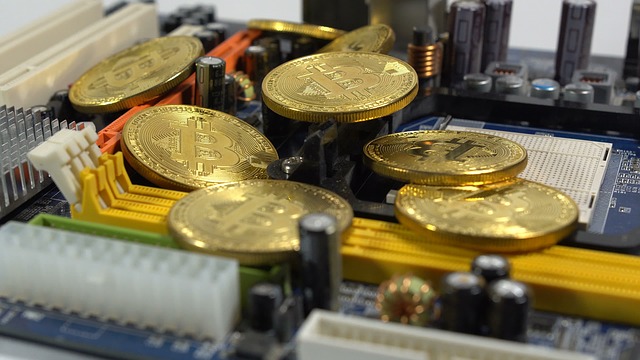Are you familiar with what Bitcoin is and how it works? Don’t worry, and we are here to explain to you. Bitcoin is new money invented in 2009 by an anonymous individual named Satoshi Nakamoto. Unlike government-issued currencies like the dollar and euro, Bitcoin permits internet transfers without intermediaries like banks or payment processors.
The elimination of those gatekeepers opens up a slew of new possibilities, including the ability to travel more swiftly and cheaply over the global internet and giving individuals complete ownership over their assets.
Expedia accepts Bitcoin for hotel reservations, Overstock accepts Bitcoin for furniture purchases, and Xbox games accept Bitcoin for investment. However, much of the unrest is around becoming wealthy through trading. Bitcoin’s value soared into the thousands of dollars in 2017.
Bitcoin is more than a digital currency that can be used as a payment or held by investors to see its value rise. A whole ecosystem supports a coin.
Many of these ecosystems are now active on the internet, but understanding what makes it tick and its operation is crucial because Bitcoin was the first.
Learn what’s going on in the Bitcoin network behind the scenes to help you better comprehend this digital phenomenon and how it’s affecting the world’s economics.
What Is Bitcoin?

Bitcoins are a digital currency that operates without the intervention of any central body. Instead, cryptography and peer-to-peer software are employed.
However, all bitcoin transactions are recorded in a public ledger, and copies are stored on servers worldwide. A node is a server that anyone with a spare computer can set up. Instead of relying on a central source of trust like a bank, consensus on who owns which coins is obtained cryptographically.
Every transaction is broadcast across the network and shared by all nodes. However, Miners aggregate these transactions into a block group and permanently upload them to the Blockchain every ten minutes. So, this is the ultimate guide to bitcoin accounts.
Virtual currencies are held in digital wallets, which are comparable to genuine wallets in that they may be accessed by client software or a variety of internet and hardware solutions.
However, there is no such thing as a bitcoin or a wallet; instead, the network decides who owns a coin. Also, a private key is used to prove ownership of funds to the web while making a transaction. A “brain wallet” is a notion in which a person memorizes their private key and uses it to access or spend their virtual money.
How Does Bitcoin Work?
The Blockchain is a linked body of data made up of units called blocks that contain information about every transaction, such as date and time, total value, buyer and seller, and, as the name says, a unique identifying code for each exchange. Entries are connected in chronological order to form a digital blockchain.
According to Stacey Harris, a consultant for Pelicoin, a cryptocurrency ATM network, “once a block is published to the Blockchain. Also, it becomes available to anyone who wants to look at it, serving as a public log of cryptocurrency transactions.”
So, it’s “like a Google Doc that anyone can participate on,” says Buchi Okoro, CEO, and co-founder of the African bitcoin exchange Quidax. No one controls it, but anyone with a link may contribute.
While the idea of everyone being able to update the Blockchain may appear dangerous, it is what makes Bitcoin trustworthy and secure. A transaction block must be authenticated by most Bitcoin holders to be included in the Bitcoin blockchain. The unique codes used to identify users’ wallets and transactions must match the correct encryption pattern.
Counterfeiting these codes is incredibly tough because they are long, random numbers. Also, Crypto Aquarium’s Bryan Lotti, a fraudster who knows your Bitcoin wallet’s key code has approximately the same chance of winning the Powerball lottery nine times.
This level of statistical randomness in the blockchain verification codes, which are required for every transaction, considerably minimizes the possibility of someone making a fraudulent Bitcoin transaction.
What Is Bitcoin Mining?
Mining is the process of both maintaining and producing new currencies on the bitcoin network.
Also, all transactions are broadcast to the whole network. Miners combine large transactions into blocks by completing a cryptographic calculation that is incredibly difficult to generate but simple to verify.
The first miner solves the next block and broadcasts it to the network, and if it is validated correctly, it is added to the Blockchain. The miner is then given a portion of the newly generated bitcoin.
The bitcoin program has a fixed limit of 21 million coins.
There’ll never be anything else. The entire quantity of cash in circulation will be attained by 2140. The program doubles the difficulty of mining bitcoin every four years by lowering the size of the rewards.
It was possible to instantly mine a bitcoin using a modest computer when it first came out.
Mine today requires rooms full of vital equipment, including high-end graphics cards capable of crunching through the calculations, making mining more expensive than it is worth when combined with a volatile bitcoin price.
Miners also choose which transactions to be included in a block, so the sender adds various fees as an incentive. As an incentive to continue mining, these fees will be paid once all coins have been mined. Also, this is required since it provides the Bitcoin network’s infrastructure.
How to Use Bitcoin

With a Bitcoin wallet in hand, you can spend your Bitcoin balance on whatever you choose at participating businesses. That list has expanded to include groceries, trips, and even the kitchen sink. Furthermore, NGOs such as Wikipedia and other charities accept Bitcoin payments.
Overstock was a pioneer in taking Bitcoin payments. Meanwhile, Microsoft allows users to deposit Bitcoin into their accounts to purchase things online.
Bitcoin debit cards are debit coins pre-loaded with the cryptocurrency, allowing you to spend them. Debit cards are accepted even if the cryptocurrency is not. Using these debit cards means that you do not have to convert Bitcoin into local cash. Bitcoin debit cards are available from several organizations, including BitPay and Coinbase (and some even support a variety of other cryptocurrencies).
Gift cards also may be used to spend Bitcoin. You may spend that money at stores that do not yet accept cryptocurrencies by purchasing a gift card with Bitcoin from numerous sites. Alternatively, you may convert unwanted gift cards to Bitcoin.
Unsurprisingly, these sorts of gift cards have a cost attached to them. Bitcoin Voucher, for example, charges a 4 percent service fee plus a $3 per transaction crypto withdrawal cost.
You must know the Bitcoin equivalent pricing for a Tesla product and input the correct amount – else, your order will be canceled. The auto manufacturer also warns that if you overpay, you may not get your money back and that transactions might take up to six hours to complete.
How to Buy Bitcoin
To purchase Bitcoin or any other cryptocurrency. Top picks for the most acceptable cryptocurrency exchanges include Coinbase, Gemini, and Binance. If you don’t already have a plan, contact us. Check if your exchange’s platform has a Bitcoin wallet; if not, you’ll need to create your own.
You may also buy crypto on Robinhood, Paypal, or Venmo. However, doing so frequently means you won’t withdraw your coins and shift them to another platform.
Before investing in Bitcoin, you must first fund your account after choosing an exchange. Depending on the business, you may fund your account using bank transfers from a checking or savings account, PayPal, wire transfers, a cryptocurrency wallet, or even a credit or debit card. If you use PayPal, it costs $10 for wire transfers and 2.5 percent of the transaction value.
You can make your first order to acquire Bitcoin after your account has been financed. Depending on the platform, you may purchase it by just pressing a button, or you may be required to enter Bitcoin’s ticker symbol (BTC). Also, the amount you want to invest must then be entered.
After the transaction is completed, you will have a fraction of a Bitcoin. Also, this is owing to the high initial cost of buying a single Bitcoin today. If Bitcoin’s current price were $38,000, you would need to invest that much. If you put in less money, say $1,000, you’d get a fraction of a Bitcoin, in this case, 0.026 percent.
Most large exchanges have private insurance to compensate customers if this occurs, and they are progressively holding the majority of user assets offline in what is known as cold storage. Store your Bitcoin in an online or offline wallet if you want the most security.
How to Invest in Bitcoin
First, you can decide where you wish to make your Bitcoin. The vast majority of Bitcoin investors use cryptocurrency exchanges. However, Bitcoin is an open-source technology; there is no official Bitcoin corporation, although multiple businesses enable Bitcoin transactions.
These exchanges, like stockbrokers, act as intermediaries in bitcoin investing. If you want to purchase something from a business, you must first decide which deal to buy. Also, here are a few of the most popular options: Coinbase, Binance, Kraken, Gemini, and Bitfinex. So, there is to know about Binance vs. Coinbase and begin investing now.
When you purchase a coin, it is stored in a “wallet,” which holds all of your cryptocurrencies. Also, there are two sorts of wallets available: “hot wallets” and “cold wallets.” AElectrum and Mycelium are two famous hot wallets.
A cold wallet is the most secure way to save your funds. The bulk of cold wallets ranges between $60 and $100. Two popular cold wallets are the Trezor and the Ledger Nano.
You must link your wallet to your bank account after you receive it. Also, this allows you to purchase and sell coins.
Make Your Bitcoin Purchase You are now prepared to purchase Bitcoin. Everything you require will be available for purchase at the local bitcoin exchange.
Manage Your Bitcoin Investments, and After you’ve purchased bitcoin, you can use your coins to make online transactions, Hold your cash for an extended period in the hopes they’ll appreciate it.
Related: Bitcoin & Cryptocurrency Scams: Get Your Money Back!
Should You Buy Bitcoin?
You want to keep money in investments that you are willing to lose. We all have an amount of money in mind that we can afford to lose without it having a significant influence on our daily lives or long-term financial objectives, regardless of our budgets.
If you’re risk-averse, you may invest that money to see it grow while knowing you’ll be OK if it shrinks. Even with a crypto stalwart like Bitcoin, crypto prices remain fickle. That implies occasional significant upswings, but you must also be prepared to lose money if the value swings downward.
You may wish to purchase Bitcoin to use as money (as opposed to investment). For example, you may buy purchases through platforms that trade in cryptocurrency or get better deals when you pay with cryptocurrency. If you need to purchase or send money overseas, Bitcoin may provide a better conversion rate than USD.
However, depending on where you live and your experience with global economies, you may be cautious of government-regulated currencies and central banks.
Because of its volatility, bitcoin isn’t a perfect answer to problems like hyperinflation or government corruption, which endangers citizens’ money. However, you may determine that it is a better match for your assets than traditional financial institutions.